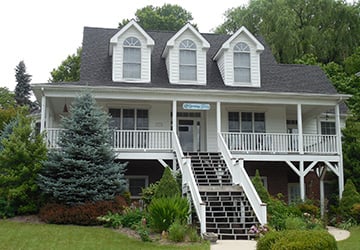You dream of buying a house and making an investment for your future. What if you could buy a home, sell it for a profit after two years, reinvest in another house and continue to build wealth from that process? This home-buying process can be your reality. Let’s explore the possibilities.
You found a fixer-upper house you want to purchase. You aren’t sure if the house is worth the price considering you’ll have to remodel it. You wonder if you’ll make money on the house after fixing it up and selling it. Talk to your real estate agent to determine if the fixer-upper is a good investment. Agents have many resources to help determine if purchasing a fixer-upper house is in your best interest. Need a reputable home inspector or appraiser? Your agent can arrange both to ensure you get the best house for the best price.
- Buy the worst house in the best neighborhood
- Determine the actual value of the house
- Learn what to remodel and what to avoid
- Get a home inspection
- Build equity quicker
Your real estate agent feels that the fixer-upper home you’ve found is a good investment for you, and she shares valuable information about selling it in the future. The house is in a neighborhood where home values have increased over the past couple of years which is favorable.
You tell your agent about the improvements you would like to make to the home, your timeline, and how you would like to sell it for a profit. Your real estate agent points out that if you sell it in under two years, you will pay capital gains taxes ($1,000’s!). If you make the home your primary residence and remodel it for 2+ years, then sell it, you will maximize your profit and won’t have to pay capital gains taxes.
How can you determine if you’re buying a home for the best price? How do you know if the house has hidden problems? Your real estate agent suggests hiring an appraiser to determine the value of the home you’re hoping to buy. You don’t want to overpay for the home if it isn’t worth the listing price. Your agent encourages a home inspection to find any problems with the house that might not be obvious (ex. foundation, roof, mold issues). Use professionals your real estate agent recommends to determine a fair price and to inspect the house for underlying problems so you can save money in the long run.
When remodeling a fixer-upper, take advantage of the resources your real estate agent provides to help determine which improvements will give you a return on your investment. You want to make sure you don’t invest so much money in the home remodel that you don’t turn a profit when you sell the house. In other words, if you bought a $90,000 house and put $40,000 into repairs, you would need to be able to sell it for $130,000 to break even. Your agent and her professional contacts can give you an idea of where you should spend your remodel budget so you can profit from the sale of the house in a couple of years.
Buy fixer-upper house: $90,000
Improvements: $40,000
Sell after 2 years for $160,000
Profit: $30,000 + Equity
When you remodel a fixer-upper, you want to profit from the sale of the house, not break even. In the example above, the homeowner profited from selling their house and also built up equity. When you know which home improvements will bring you the greatest profit, you set yourself up for tremendous success when the time comes to sell the home and buy your next project.
Ultimately, you sell the remodeled fixer-upper house after owning it for two years and make a significant profit. Your real estate agent helps you find your next fixer-upper, and you buy it using the profits from the house you just sold. With the knowledge you’ve gained from fixing up the first dilapidated house, you’re confident you can remodel the next house and sell it in a couple of years for a more significant profit.
What about buying a foreclosed home and fixing it up? Start by asking yourself if it’s in a good neighborhood where home values are increasing. Then, talk to your real estate agent to learn more about the steps needed to buy a foreclosure, as it differs significantly from buying a non-foreclosed house.














